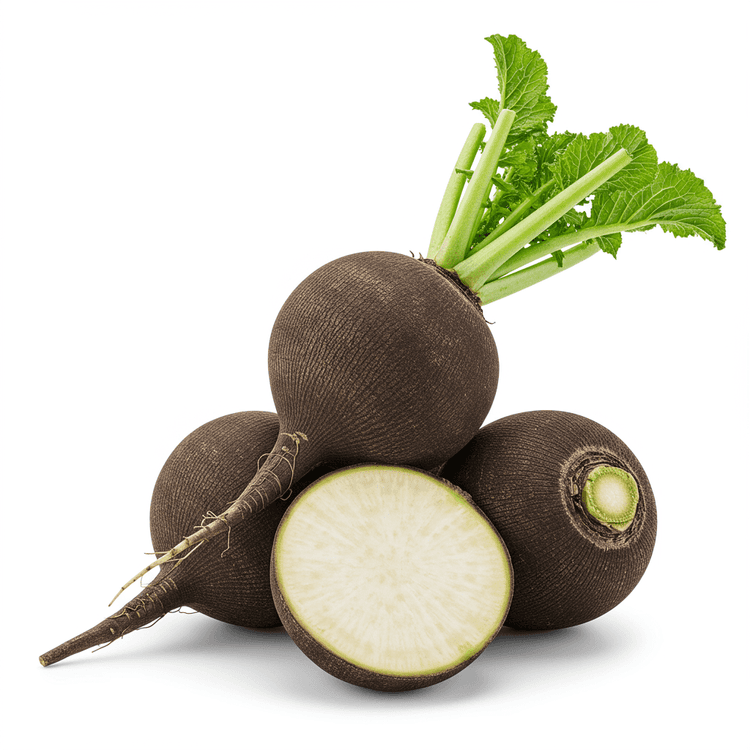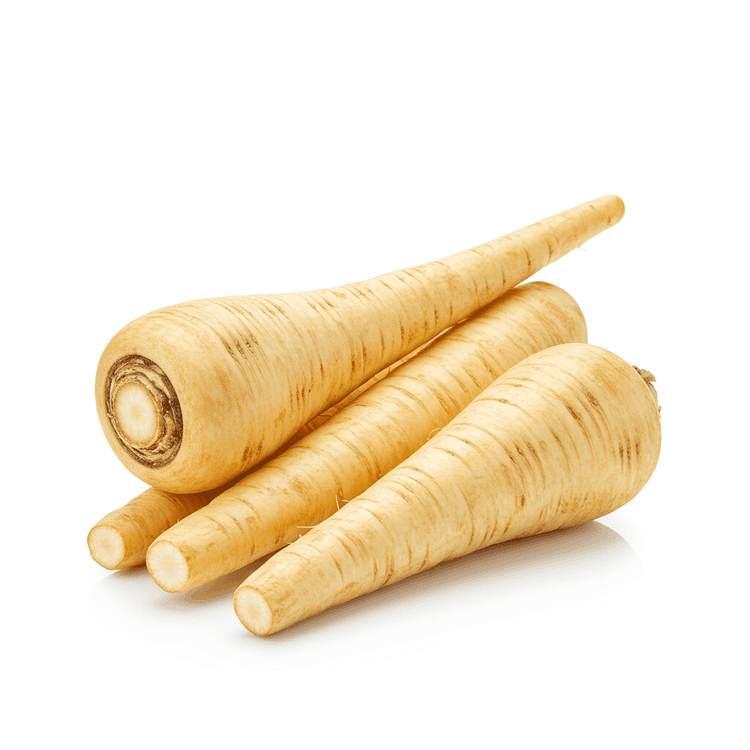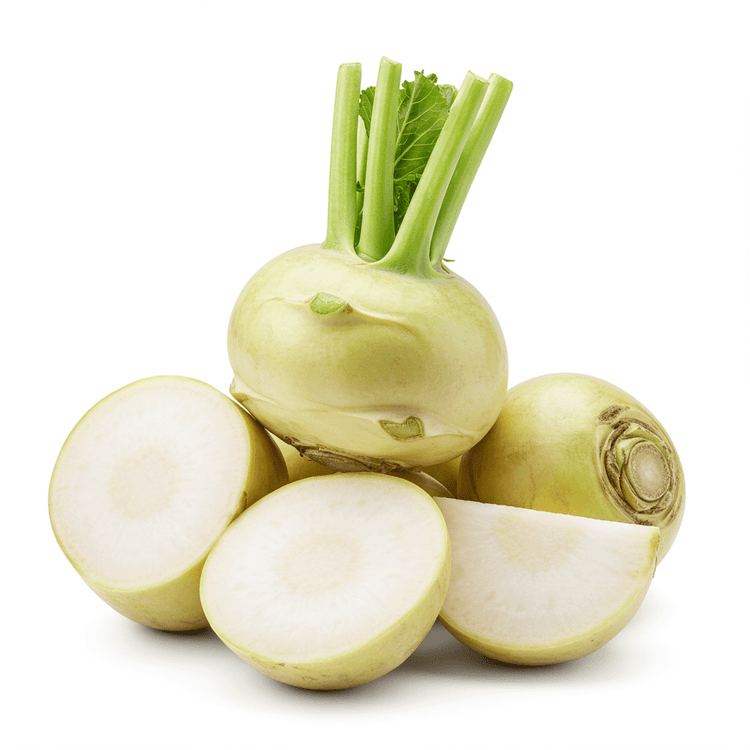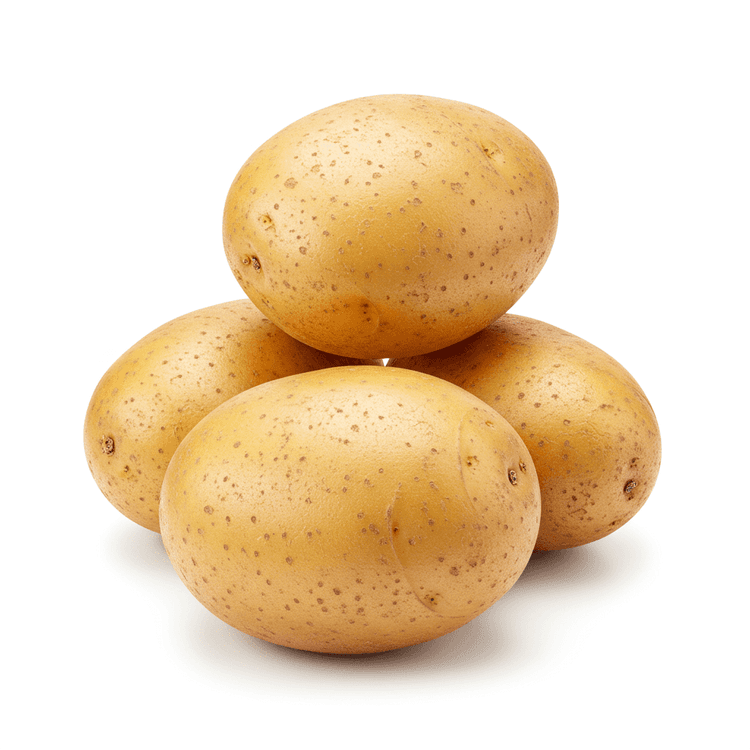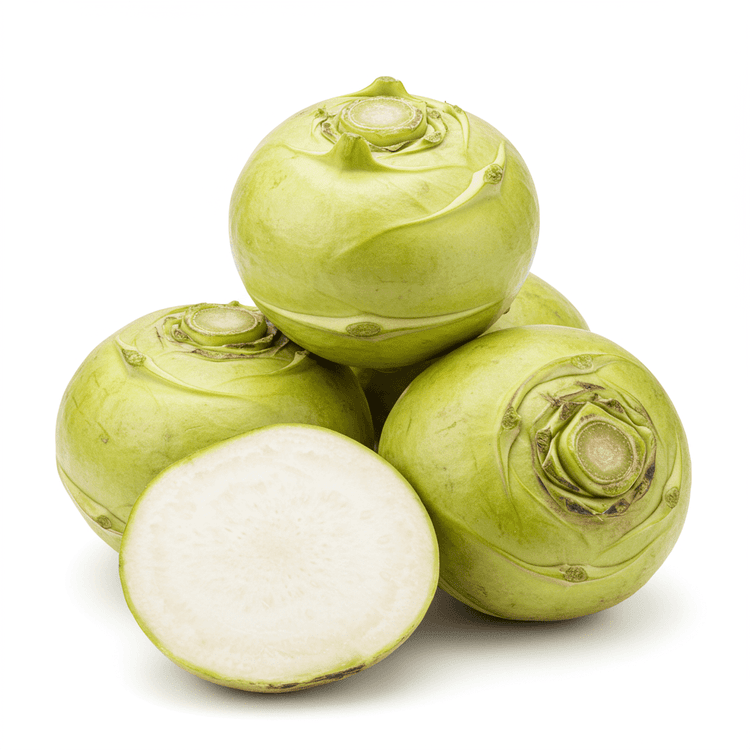
Rutabaga
Rutabaga, also known as Swedish turnip, is a root vegetable with a subtly sweet and slightly bitter flavor profile. Its flesh is dense and firm, with a creamy texture when cooked. The exterior is typically a blend of purple, yellow, and tan hues. As a versatile winter vegetable, rutabaga makes a nutritious addition to hearty meals, offering a unique earthy sweetness that enhances both sweet and savory dishes. Discover delicious and healthy ways to prepare this underappreciated root vegetable.
Common Uses
- Rutabaga makes a wonderful addition to roasted root vegetable medleys, where its subtly sweet flavor complements carrots, parsnips, and potatoes. Roasting rutabaga brings out its natural sugars and creates a tender, caramelized texture.
- Mashed rutabaga offers a lower-carb alternative to mashed potatoes. Blend it with butter, cream, and seasonings for a creamy and flavorful side dish.
- Add diced rutabaga to soups and stews for added body and nutrients. Rutabaga holds its shape well during long cooking times and contributes a mild sweetness to the overall flavor.
- Rutabaga can be grated and used in slaws or salads, providing a slightly peppery and crunchy element. Combine it with shredded cabbage, carrots, and a tangy vinaigrette for a refreshing dish.
- Consider turning rutabaga into fries. Cut rutabaga into sticks, toss with olive oil and spices, and bake or air fry until golden brown and crispy for a healthier alternative to potato fries.
- Rutabaga can be creatively used in gratins and casseroles. Layer thinly sliced rutabaga with cheese, cream, and seasonings, then bake until bubbly and golden for a comforting and flavorful side dish.
Nutrition (per serving)
Nutrition (per serving)
Calories
66.2kcal (3.31%)
Protein
1.5g (3%)
Carbs
15.2g (5.53%)
Sugars
8.7g (17.4%)
Healthy Fat
0.1g
Unhealthy Fat
0.0g
% Daily Value based on a 2000 calorie diet
Nutrition (per serving)
Calories
66.2kcal (3.31%)
Protein
1.5g (3%)
Carbs
15.2g (5.53%)
Sugars
8.7g (17.4%)
Healthy Fat
0.1g
Unhealthy Fat
0.0g
% Daily Value based on a 2000 calorie diet
Health Benefits
- Rich in vitamin C, boosting the immune system and acting as an antioxidant.
- Good source of fiber, promoting digestive health and regularity.
- Contains potassium, which helps regulate blood pressure and supports heart health.
- Low in calories and carbohydrates, making it a healthy choice for weight management.
- Provides glucosinolates, compounds that may have anti-cancer properties.
- Offers a source of calcium, crucial for maintaining healthy bones and teeth.
Substitutes
Chefadora AI is here.
Experience smarter, stress-free cooking.
Storage Tips
Rutabagas should be stored in a cool, dark, and humid place, like the crisper drawer of your refrigerator. Whole rutabagas can last for several weeks to a few months if stored properly. Before storing, remove any leafy tops, but don't wash them. If you've cut a rutabaga, wrap the exposed portion tightly in plastic wrap or place it in an airtight container and refrigerate; it should be used within a week.
Marnirni-apinthi Building, Lot Fourteen,
North Terrace, Adelaide, South Australia, 5000
Australia
